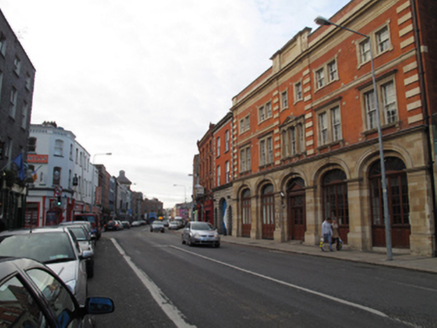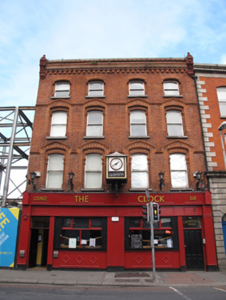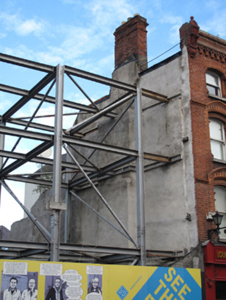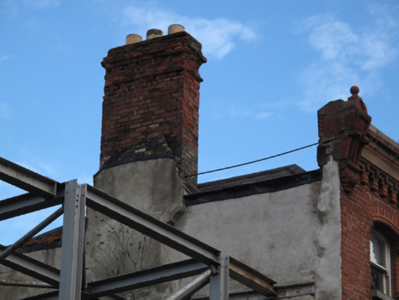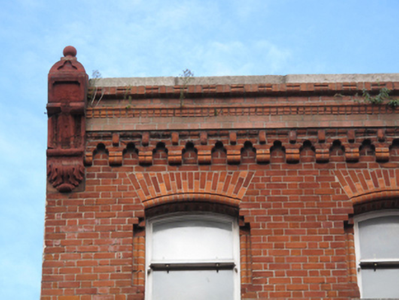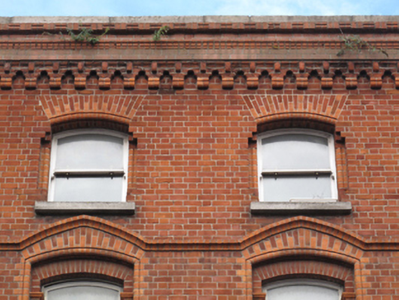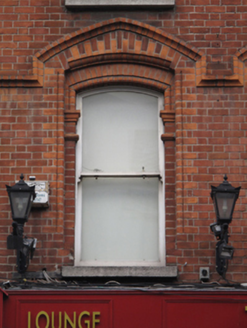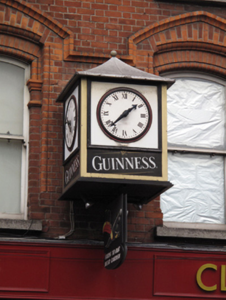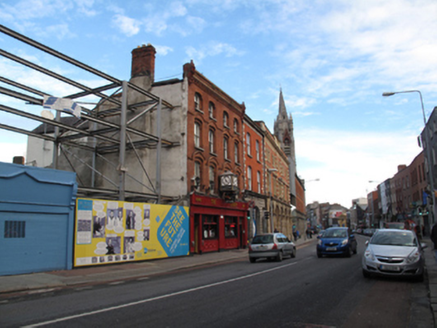Survey Data
Reg No
50080585
Rating
Regional
Categories of Special Interest
Architectural, Artistic, Social
Original Use
House
In Use As
Public house
Date
1770 - 1790
Coordinates
314659, 233879
Date Recorded
04/11/2013
Date Updated
--/--/--
Description
End-of-terrace former pair of two-bay four-storey houses, built c.1780, combined as four-bay public house and refaced c.1875. Recent shopfront to front (south) elevation and now also in use as apartments. Hipped slate roofs, set perpendicular to streetscape with red brick chimneystacks, hidden behind red brick parapet having carved terracotta consoles with ball finials, granite coping, moulded red brick string courses and corbels. Cast-iron rainwater goods. Red brick laid in Flemish bond to front. Rendered walls to upper floors to west elevation. Segmental-headed window openings having carved brick surrounds, continuous moulded red brick hood moulding to first and second floors, granite sills and one-over-one pane timber sash windows. Wall-mounted clock bracket to first floor. Display windows to shopfront, flanked by door to public house and door to overhead accommodation. Granite paving to footpath to front, with steel trapdoor to basement area to front.
Appraisal
This elegantly-proportioned building makes a strong impression on the streetscape. Elaborate red brick detailing to the upper floors enlivens the façade and add textural interest to the streetscape. Carved terracotta consoles and brickwork are testament to the skill and artisanship available during the later decades of the nineteenth century. This public house incorporates two earlier buildings, creating a unified façade when it was refaced in the 1890s. The Dublin Street Directory of 1862 indicates that No.110 was the property of Pat Dolan, wholesale and retail tea, wine and spirit merchant and valued at £52, while No.111 was owned by Lawrence Clarke, surgeon and accoucheur and was valued at £28. By 1875, the properties were combined and in use by Pat Ryan, wholesale tea, wine, and spirit merchant. Thomas Street has a long commercial history, having developed as one of the main arteries into the city and had many trading places and markets.
